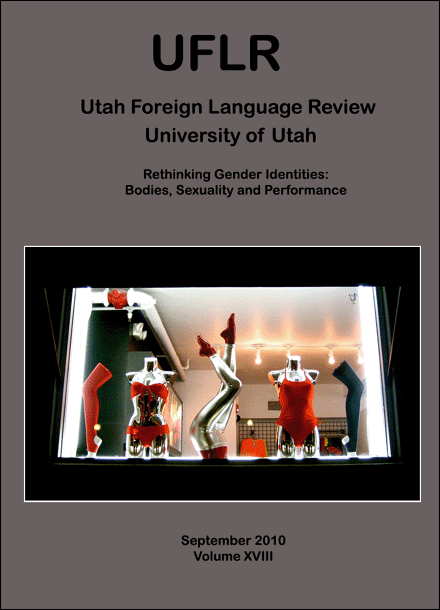Isabel Franc Revisiting and Subverting Gender Roles and Sexuality in Traditional Western Folktales
Abstract
Isabel Franc opens her collection of stories and fables called Cuentos y fábulas de Lola Van Guardia with a section called ―De corte clásico‖1 in which she introduces her first three stories ―El cuento de la princesa frígida‖2, ―La ejecutiva durmiente‖3 and ―El príncipe impotente‖4. These are classical western folktales that have been altered to form a new paradigm in which the main characters are homosexual. She elegantly blends homosexuality, humor and sarcasm within the traditional structure of a fairytale creating a new viewpoint and a new literary piece. Within English literature, it is not rare to revisit traditional stories; this is a commonly practiced idea in Spain as well, but Franc offers a new viewpoint by trying to subvert gender roles adding homosexuality to the stories together with sarcasm and social critique. This paper will explore the ways in which Isabel Franc revisits and subverts gender roles in western folktales as well as how, despite maintaining a traditional frame and settings, she adds sexual elements to these stories. It will also answer the question of whether these subversive stories could be considered feminist or not.Keywords
UFLR is released under a Creative Commons Attribution-NoDerivs 3.0 Unported License:
Attribution — You must attribute the work in the manner specified by the author or licensor (but not in any way that suggests that they endorse you or your use of the work).
No Derivative Works — You may not alter, transform, or build upon this work.
For more information on the Creative Commons Attribution-NoDerivs 3.0 Unported License, please visit: http://creativecommons.org/licenses/by-nd/3.0/
UFLR does not retain any copyright to the authors' original work. As per the Creative Commons Attribution-NoDerivs 3.0 Unported License, you may may use portions of the articles published herein with proper attribution as published in UFLR. As UFLR does not retain the copyright to the author's original work, anyone interested in republishing or altering the original work in any way must contact the author or indicated right holder directly for permission.



